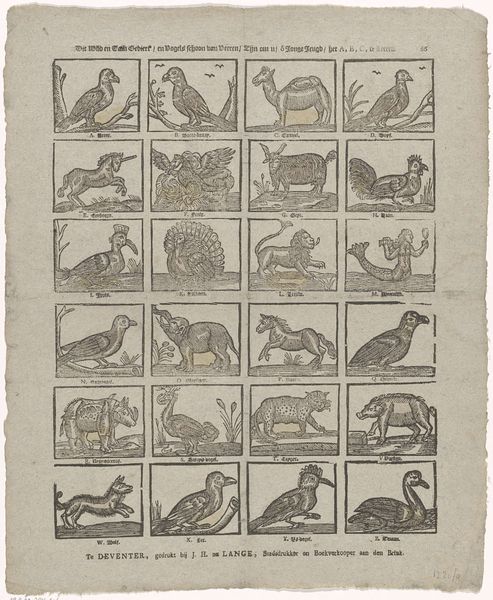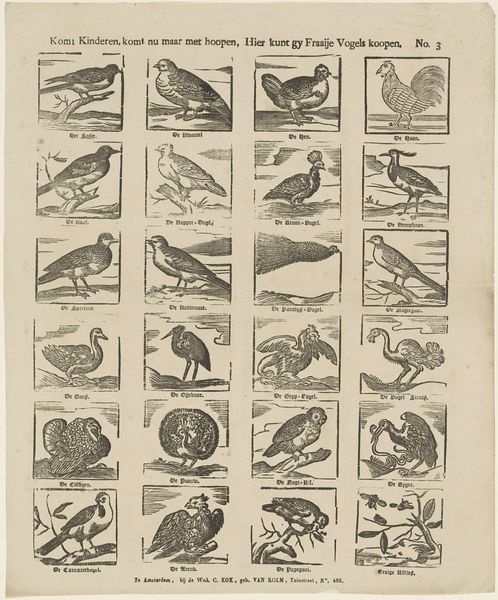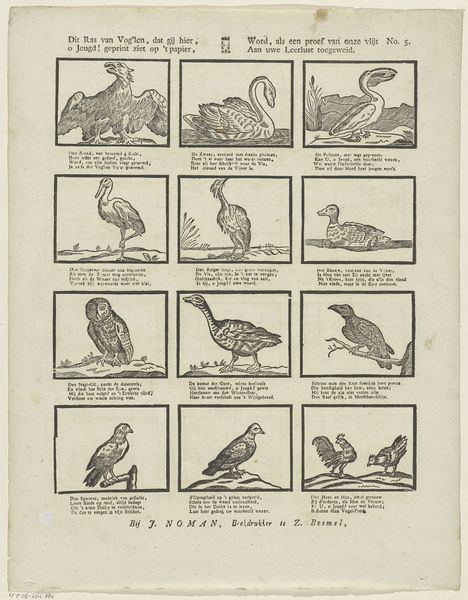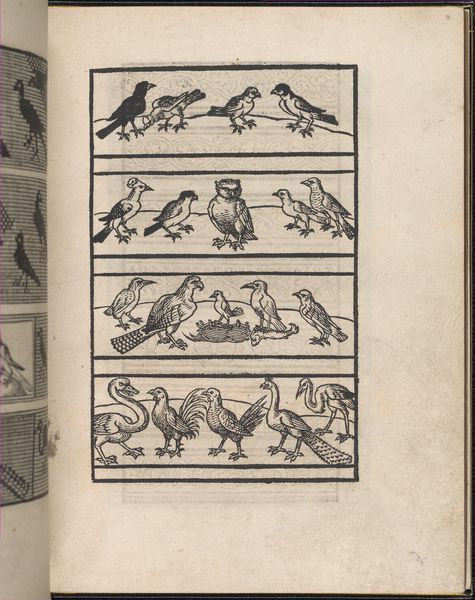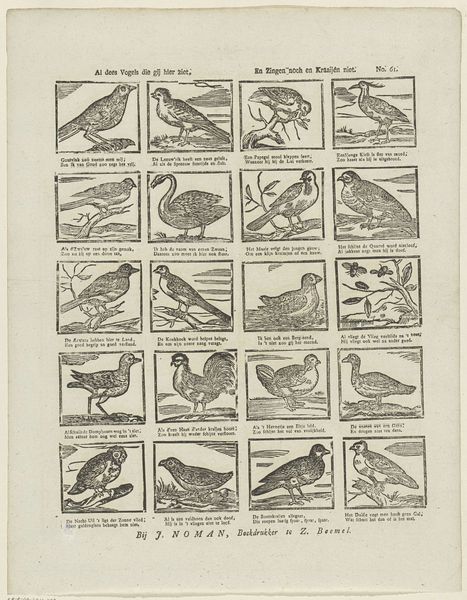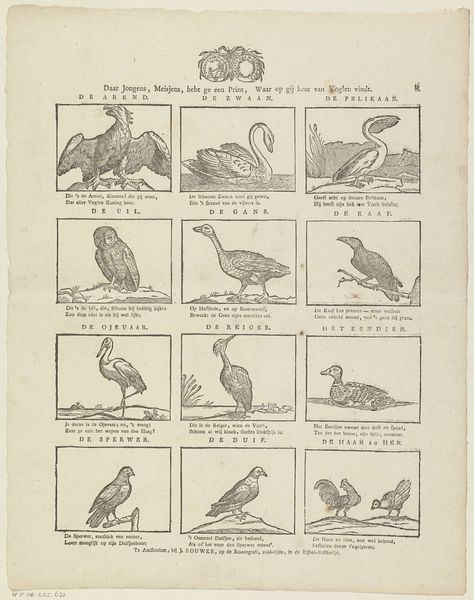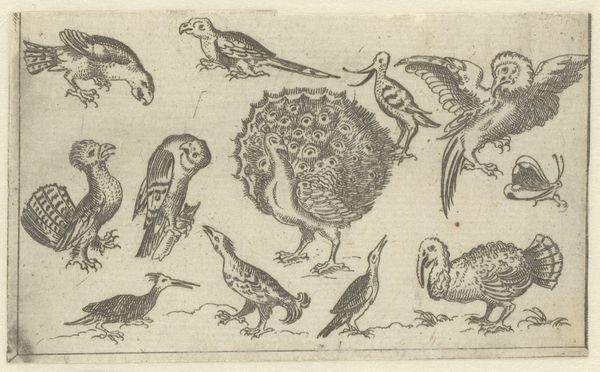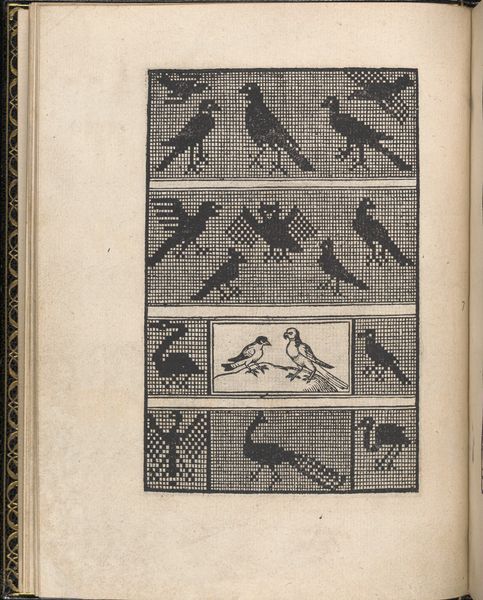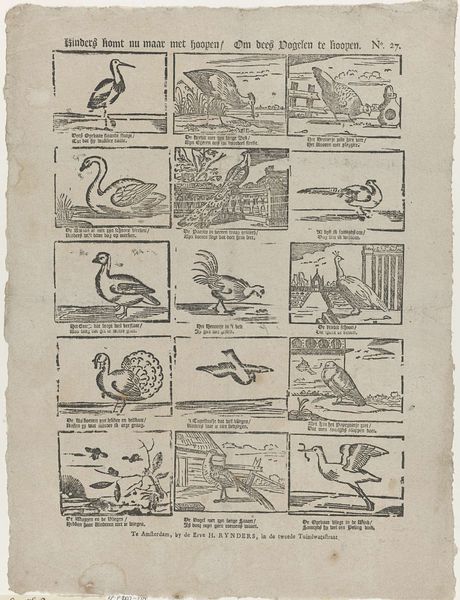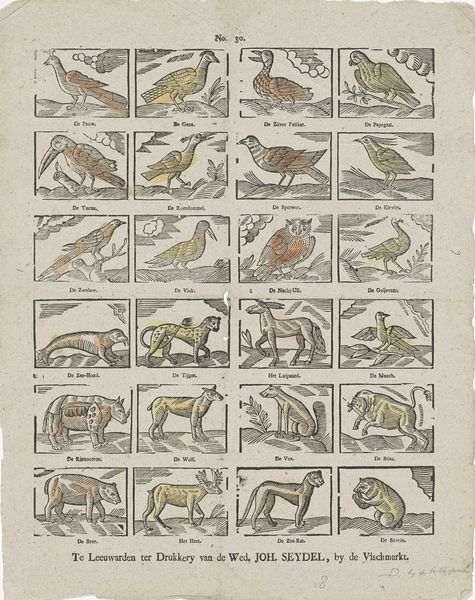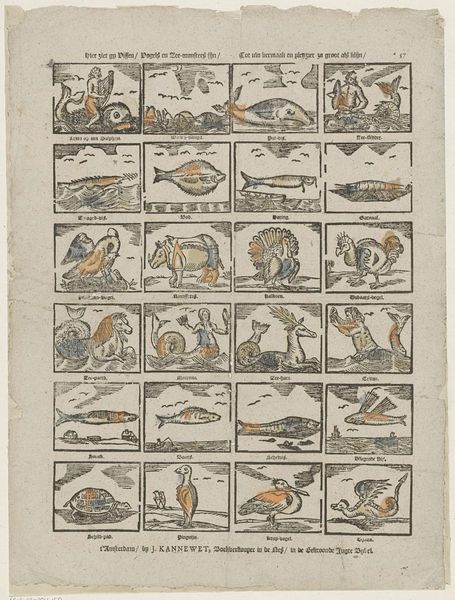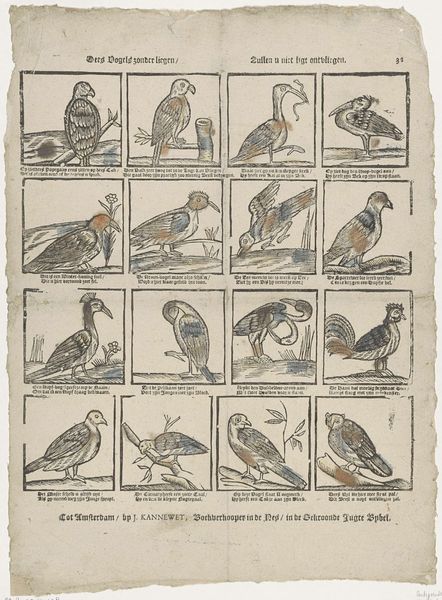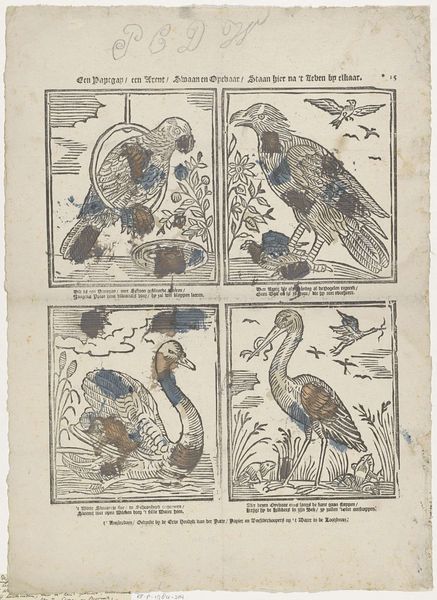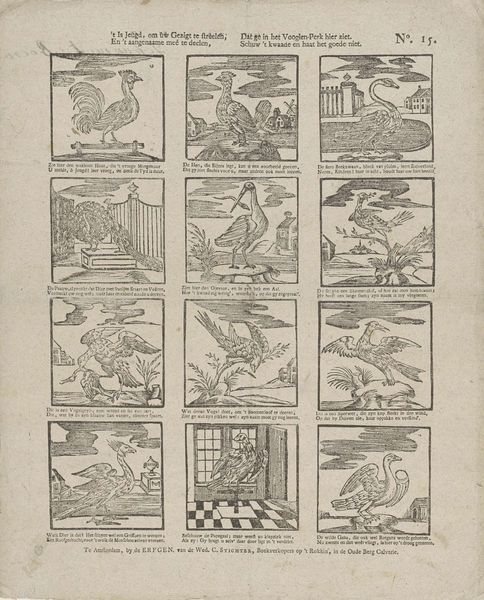
drawing, print, ink, engraving
#
drawing
# print
#
pen sketch
#
landscape
#
bird
#
ink
#
genre-painting
#
engraving
Dimensions: height 405 mm, width 315 mm
Copyright: Rijks Museum: Open Domain
Curator: It's interesting to consider this 19th-century print, "Menagerie van verscheide vogelen" by Johan Noman, more as a document of production than just a collection of bird images. Editor: Right, a menagerie of birds rendered with ink, drawing, and engraving. I see twelve birds, each in its little box, a bit like a specimen display. I’m curious, what can we learn from looking at the means by which this image was produced? Curator: Well, consider the engraving process. It suggests a market for reproducible images, likely reaching beyond the elite. The labor involved in creating this plate, the access to materials like ink and paper... these tell us about emerging visual economies. This isn't just art for art's sake. Editor: So, it’s less about the birds themselves and more about… the act of making this and circulating it? Curator: Precisely. How does the standardized grid format influence our perception? Is this about scientific observation, or mass-produced entertainment? Are those distinct, or are they part of the same consumer culture emerging? Think about who is buying this. What is their relationship with nature and printed images? Editor: It seems almost like a proto-field guide, but made accessible by the printmaking process. Was this meant for study, or pleasure? Curator: I think it sits at the intersection, blurring the lines between knowledge dissemination and commodified leisure. We often think of these categories as seperate but actually printing allows a form of affordable and mass education. Does that challenge your initial perception of this work? Editor: Absolutely! I was initially caught up in the subject matter, but looking at the materials and mode of production opens up a whole new understanding of the work's role in society at the time. Curator: Exactly! By examining its materiality and production, we gain insight into the cultural and economic context that gave it form and meaning.
Comments
No comments
Be the first to comment and join the conversation on the ultimate creative platform.
